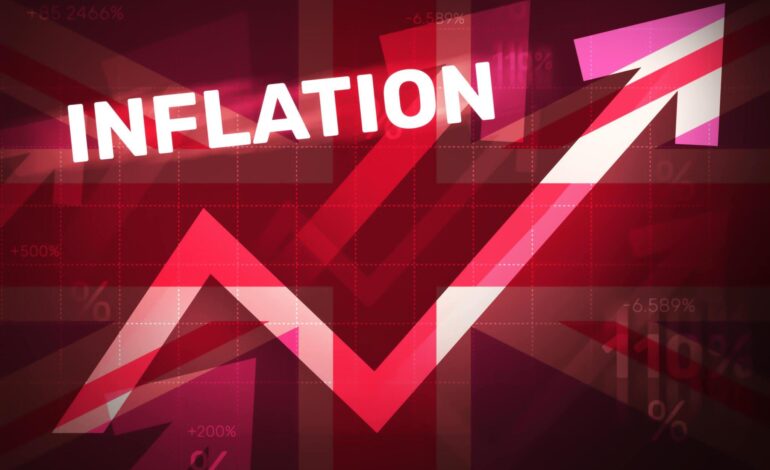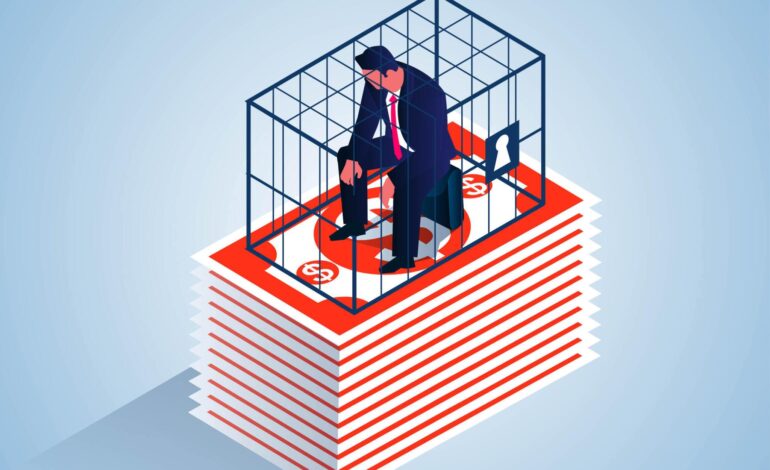Inflation Explained: Causes, Effects, and Strategies to Cope

Introduction:
Inflation, the sustained increase in the general price level of goods and services over time, is a pervasive economic phenomenon that impacts individuals, businesses, and economies worldwide. Understanding the causes, effects, and strategies to cope with inflation is essential for navigating its implications on personal finances, business operations, and economic stability. In this comprehensive guide, we’ll explore inflation in detail, examining its underlying causes, its effects on various stakeholders, and practical strategies to cope with inflationary pressures.
1. Understanding Inflation:
Inflation occurs when the purchasing power of money declines, resulting in a rise in the overall price level of goods and services. It is typically measured by various inflation indices, such as the Consumer Price Index (CPI) or the Producer Price Index (PPI), which track changes in the prices of a basket of goods and services over time.
2. Causes of Inflation:
Inflation can be caused by a variety of factors, including:
- Demand-Pull Inflation: Occurs when demand for goods and services exceeds supply, leading to upward pressure on prices.
- Cost-Push Inflation: Arises from increases in production costs, such as wages, raw materials, or energy prices, which are passed on to consumers in the form of higher prices.
- Monetary Factors: Changes in the money supply, interest rates, and central bank policies can influence inflationary pressures by affecting consumer spending, borrowing, and investment.
- External Shocks: Events such as natural disasters, geopolitical conflicts, or supply chain disruptions can disrupt production and distribution networks, leading to temporary spikes in prices.
3. Effects of Inflation:
Inflation can have a range of effects on individuals, businesses, and economies, including:
- Reduced Purchasing Power: Inflation erodes the purchasing power of money, reducing the real value of savings and fixed-income assets.
- Uncertainty and Volatility: High or unpredictable inflation rates can create uncertainty and volatility in financial markets, impacting investment decisions and economic stability.
- Redistribution of Income and Wealth: Inflation can redistribute income and wealth from savers and fixed-income earners to borrowers and asset holders, leading to changes in relative wealth distribution.
- Menu Costs: Inflation can impose costs on businesses through the need to adjust prices, update contracts, and manage inflationary expectations.
- International Competitiveness: High inflation rates can erode a country’s international competitiveness by increasing production costs and reducing export competitiveness relative to other nations.
4. Coping Strategies for Individuals:
Individuals can employ several strategies to cope with inflation, including:
- Diversifying Investments: Investing in a diversified portfolio of assets, including stocks, bonds, real estate, and commodities, can help hedge against inflationary risks and preserve purchasing power.
- Investing in Inflation-Protected Securities: Treasury Inflation-Protected Securities (TIPS) offer protection against inflation by adjusting their principal value and interest payments based on changes in the CPI.
- Budgeting and Saving: Maintaining a budget, monitoring expenses, and saving regularly can help individuals manage their finances and build a financial cushion to withstand inflationary pressures.
5. Coping Strategies for Businesses:
Businesses can implement various strategies to cope with inflation, including:
- Cost Control Measures: Controlling operating costs, optimizing production processes, and negotiating favorable terms with suppliers can help mitigate the impact of rising production costs on profit margins.
- Pricing Strategies: Adjusting pricing strategies, implementing cost pass-through mechanisms, and offering value-added services can help businesses maintain profitability in the face of inflationary pressures.
- Investing in Innovation: Investing in research and development, technology, and innovation can enhance productivity, efficiency, and competitiveness, enabling businesses to offset inflationary cost pressures.
6. Coping Strategies for Governments and Central Banks:
Governments and central banks can adopt policy measures to cope with inflation, including:
- Monetary Policy: Central banks can use monetary policy tools, such as interest rate adjustments, open market operations, and reserve requirements, to manage inflationary pressures and stabilize the economy.
- Fiscal Policy: Governments can implement fiscal policy measures, such as taxation, government spending, and public investment, to influence aggregate demand and inflationary trends.
- Price Stability Mandate: Central banks often have a primary mandate to maintain price stability and control inflation within a target range, which guides their policy decisions and actions.
Conclusion:
Inflation is a complex economic phenomenon with far-reaching implications for individuals, businesses, and economies. By understanding the causes, effects, and coping strategies associated with inflation, stakeholders can better navigate its impacts and make informed decisions to safeguard their financial well-being and promote economic stability. From diversifying investments and implementing cost control measures to adopting monetary and fiscal policy measures, there are various strategies available to cope with inflationary pressures and mitigate its adverse effects. With careful planning, prudent decision-making, and effective policy responses, stakeholders can navigate the challenges posed by inflation and build a more resilient and prosperous future.





